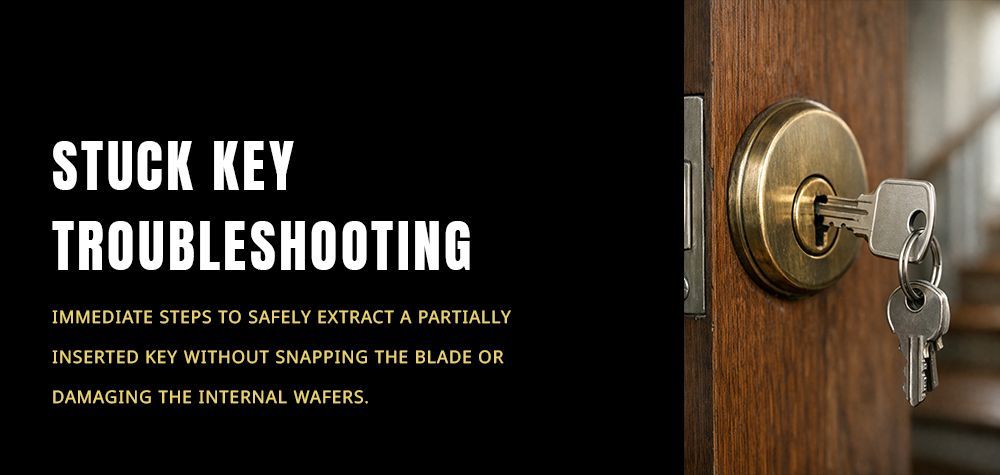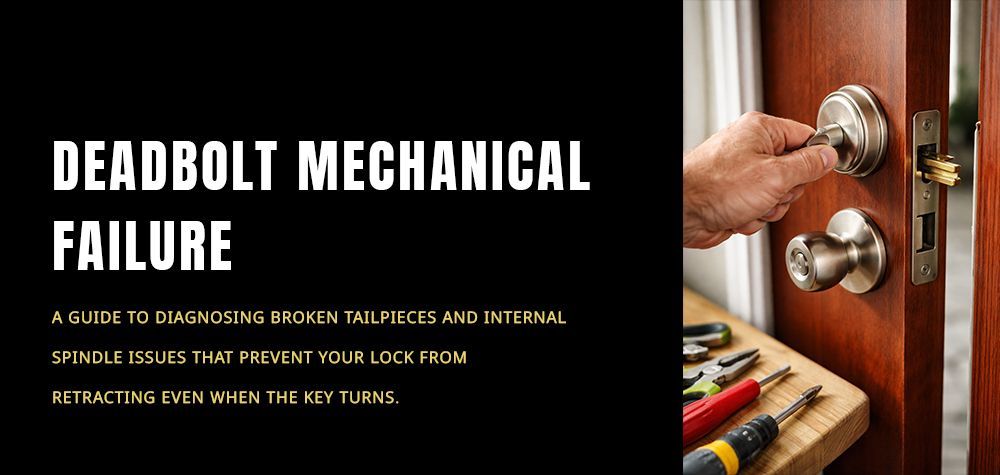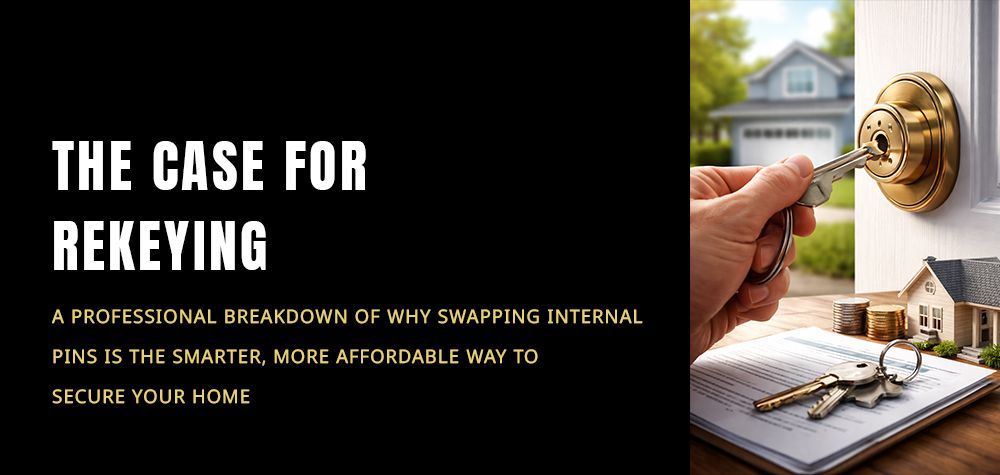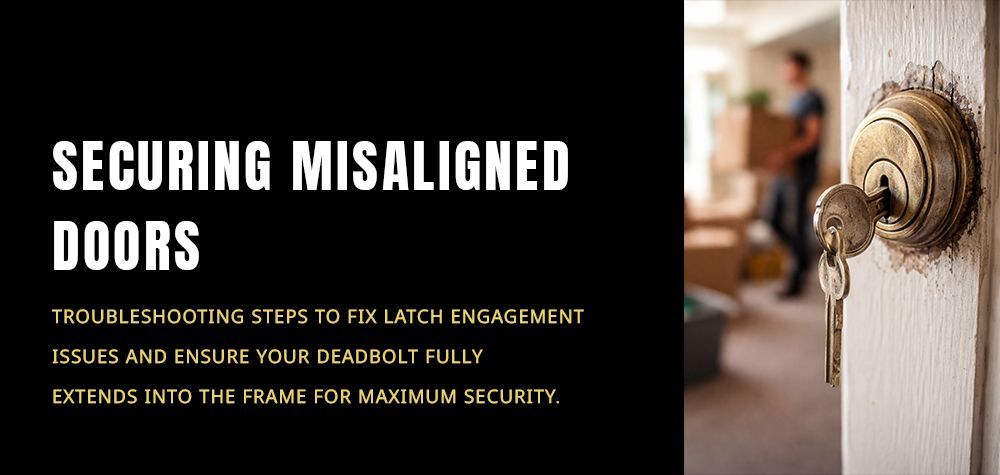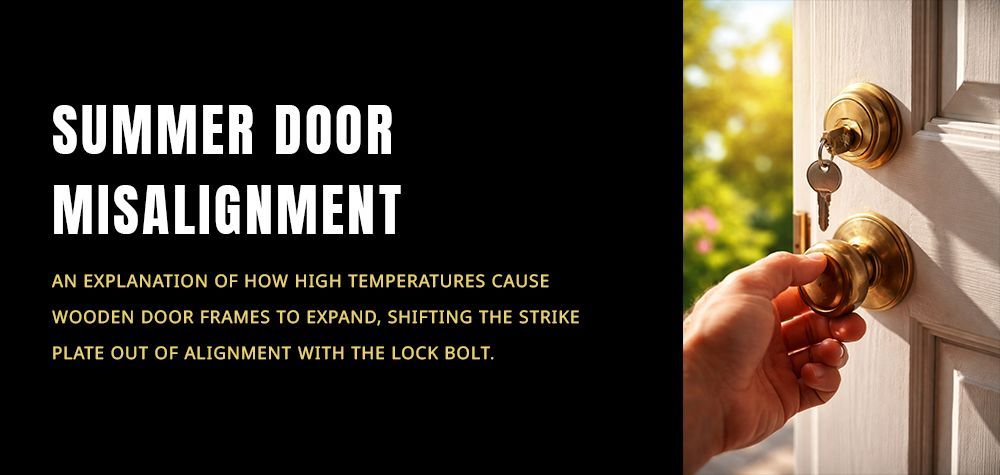What Are the Most Troublesome Situations When You Need a Locksmith?
When faced with a lock-related crisis, the need for a locksmith can arise suddenly and create considerable stress. Here’s a detailed look at the most troublesome situations where professional locksmith assistance becomes essential, with practical advice on how to handle them.
How to Change Code on Keypad Door Lock
1. Locked Out of Your Home or Car
Finding yourself locked out of your home or vehicle is a classic locksmith emergency. Finding yourself locked out of your home or vehicle is a classic locksmith emergency. Whether you've misplaced your keys, locked them inside, or experienced a malfunction in your locking mechanism, the feeling of frustration can be overwhelming. In such moments, your best recourse is to call a professional locksmith who can arrive promptly to resolve your predicament. They possess the tools and expertise required to unlock doors without causing damage, ensuring that you regain access to your property swiftly and safely.
This can happen due to:
- Forgetting or losing your keys
- Broken or jammed locks
- Malfunctioning electronic key fobs
Why It’s Troublesome:
Being locked out leaves you stranded, often in inconvenient or unsafe situations, like late at night or in unfamiliar locations.
How a Locksmith Helps:
A locksmith can provide non-destructive entry techniques, such as lock picking or decoding, and even repair or replace damaged locks or keys on the spot.
2. Broken or Stuck Keys
Keys can snap inside a lock due to wear and tear, force, or low-quality materials. Similarly, keys can get stuck due to poorly maintained locks or incorrect key usage. When a key snaps, it often leaves a frustrating predicament: part of the key remains lodged in the lock, rendering it inoperable. In such scenarios, attempting to extract the broken piece can exacerbate the issue, potentially damaging the lock further. It is advisable to enlist the help of a locksmith, who possesses the expertise and tools required to remove the remnants without causing additional harm.
Why It’s Troublesome:
A broken key can render the lock unusable, leaving you unable to secure or access your property.
How a Locksmith Helps:
A professional locksmith can safely extract broken keys and provide replacements, ensuring the lock remains functional.
3. Burglaries or Break-Ins
Experiencing a break-in is one of the most distressing reasons to call a locksmith. It’s not just about repairing damage but also restoring a sense of security. After such a harrowing experience, the importance of ensuring your home is secure becomes paramount. You may find yourself questioning how someone could breach your sanctuary, leaving you with an unsettling feeling of vulnerability. A professional locksmith not only addresses the immediate physical damage but also provides valuable insights into enhancing your security measures.
Why It’s Troublesome:
Burglars often leave locks, doors, and windows damaged, making your property vulnerable to further intrusions.
How a Locksmith Helps:
Locksmiths can quickly replace or upgrade locks, install security systems like deadbolts or smart locks, and provide advice on fortifying your property against future incidents.
4. Lost or Stolen Keys
Misplacing your keys or having them stolen can jeopardize your security, as you can’t be sure who might have access to your property. This uncertainty can lead to a heightened sense of vulnerability and unease in your home or workplace. To mitigate these risks, it’s essential to establish proactive measures that can enhance your security. Consider investing in a key management system, such as a digital keyholder or smart lock, that allows for access control and monitoring. Additionally, developing a habit of regularly reviewing your key situation—knowing precisely who has copies of your keys and when they were last accessed—can significantly contribute to peace of mind.
Why It’s Troublesome:
The uncertainty of compromised security can be unsettling, and there’s a risk of unauthorized entry.
How a Locksmith Helps:
A locksmith can rekey your locks or replace them entirely to ensure old keys no longer work. They can also provide duplicate keys for better preparedness.
5. Malfunctioning Locks or Security Systems
Locks and electronic security systems can fail over time due to wear, improper installation, or technical glitches. This can lead to vulnerabilities that compromise the safety of homes and businesses alike. Regular maintenance and timely upgrades are essential to ensure that these systems function optimally. Additionally, the increasing sophistication of criminal techniques means that outdated technology can become a liability.
Why It’s Troublesome:
A malfunctioning lock or system can either lock you out or leave your property vulnerable to intruders.
How a Locksmith Helps:
Locksmiths can repair or replace mechanical and digital locks, troubleshoot electronic systems, and offer maintenance services to prevent future issues.
6. Forgotten Safe Combinations
Safes are designed to keep valuables secure, but forgetting the combination or losing the key can create a major hurdle when you need urgent access. .In such situations, the initial sense of security can quickly turn to frustration, as the very thing meant to protect your belongings becomes an obstacle. It’s not just the valuables that are at risk; time-sensitive documents, emergency cash, or family heirlooms can be trapped inside, leaving you in a stressful predicament.
Why It’s Troublesome:
You may risk damaging the safe or its contents if you attempt DIY methods to open it.
How a Locksmith Helps:
Safe specialists can use advanced techniques to open the safe without damage and reset the combination or provide a new key.
7. Tenant Evictions or Property Changes
Landlords and property managers often face lock changes when tenants move out or are evicted. This process is not only a matter of security but also a necessary step in maintaining the integrity of the property. After all, the tenant's keys could easily be copied or shared, potentially putting the next occupant at risk. Additionally, landlords must consider the legal implications surrounding access and boundaries; a proper lock change ensures compliance with regulations governing tenant privacy and property rights.
Why It’s Troublesome:
The security of the property may be compromised if old tenants retain keys or access codes.
How a Locksmith Helps:
Locksmiths can change locks, rekey them, or install new security measures to protect the property.
8. Emergency Situations with Children or Pets Locked In
Accidentally locking children or pets inside a car or home can be a terrifying experience. The anxiety that stems from such situations is palpable, as every second feels like an eternity. Parents and guardians may find themselves gripped by overwhelming panic, their minds racing with worries about the safety and comfort of their loved ones trapped within a confined space. It’s important to remain calm and act quickly; gather your thoughts and assess the situation. If locked inside a vehicle, especially on a warm day, it is critical to consider the rising temperature that can cause distress to children and pets alike.
Why It’s Troublesome:
Such situations are time-sensitive and can escalate into health or safety emergencies.
How a Locksmith Helps:
Emergency locksmiths prioritize these situations, using quick and safe methods to regain access without causing harm to the lock or the occupants.
9. Damaged Locks Due to Weather or Age
Extreme weather conditions and aging can cause locks to corrode, freeze, or wear out. Maintaining the integrity of locks is essential to ensure security and functionality. Regular inspections can help identify early signs of corrosion or wear, allowing for timely replacements or maintenance. Utilizing lubricant specifically designed for locks can minimize the effects of moisture and prevent freezing in colder climates. Additionally, implementing weatherproof covers or seals can protect locks from rain, snow, and debris, extending their lifespan. In regions prone to extreme temperatures, choosing high-quality, weather-resistant materials for locks can further enhance durability.
Why It’s Troublesome:
Weather-damaged locks may be difficult to operate, leading to frustration and inconvenience.
How a Locksmith Helps:
Professionals can replace corroded locks, de-ice frozen mechanisms, and recommend weather-resistant options for long-term use.
10. Upgrading to Advanced Security Systems
As security needs evolve, traditional locks may no longer provide adequate protection. As security needs evolve, traditional locks may no longer provide adequate protection. With advancements in technology and the rise of sophisticated criminal tactics, individuals and businesses are increasingly seeking out innovative solutions that combine convenience with enhanced security features. Smart locks, for example, are becoming a popular alternative, offering keyless entry options controlled by smartphones and biometrics, allowing for real-time monitoring and access management remotely.
Why It’s Troublesome:
Without the right knowledge, choosing and installing advanced systems like smart locks or access control can be daunting.
How a Locksmith Helps:
A locksmith can guide you in selecting the best options, install them professionally, and provide training on how to use them effectively.
Conclusion
Locksmith emergencies are often stressful, but knowing the most common scenarios helps you prepare for and respond effectively to these situations. Whether it’s a lockout, a break-in, or a malfunction, professional locksmiths bring the tools, expertise, and reassurance needed to resolve the problem quickly and securely.
In addition to lockouts and break-ins, other frequent locksmith emergencies include lost keys, broken keys, and faulty locks. Imagine arriving home after a long day only to realize your keys are nowhere to be found. In such cases, a locksmith can quickly provide key duplication or rekeying services to ensure your property remains secure.
Call Us Any Time!


